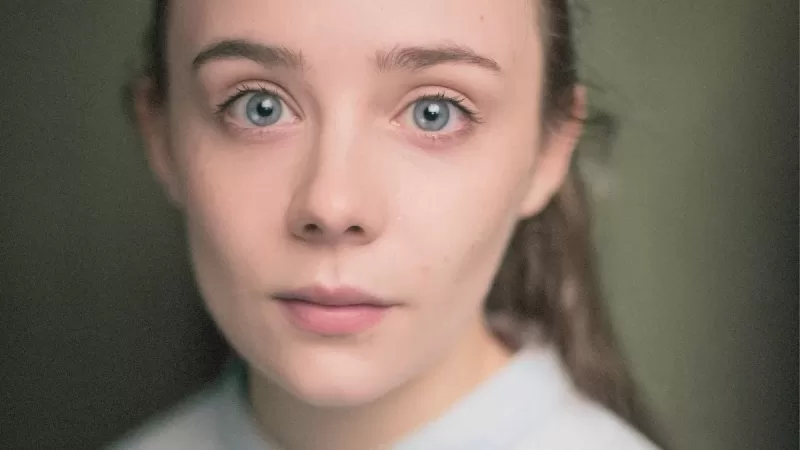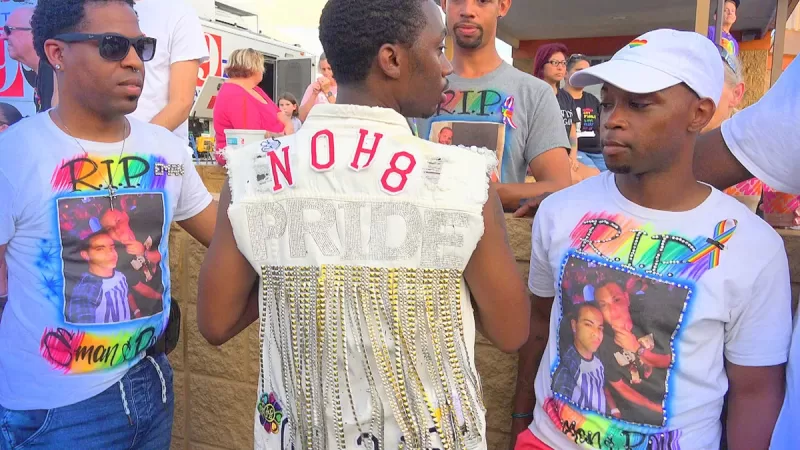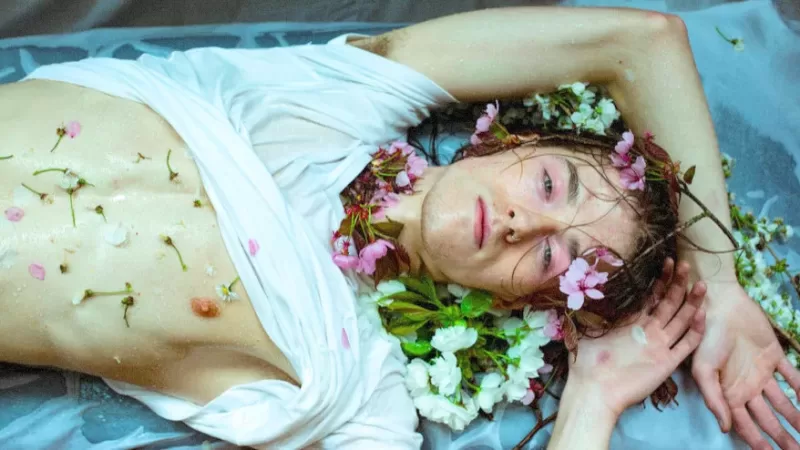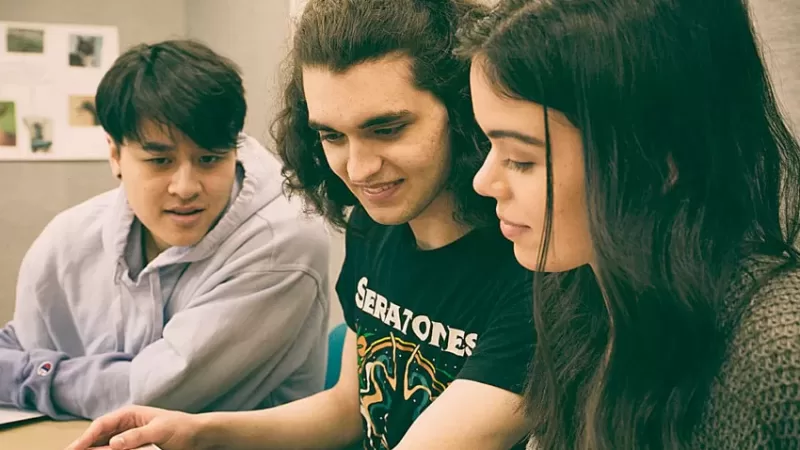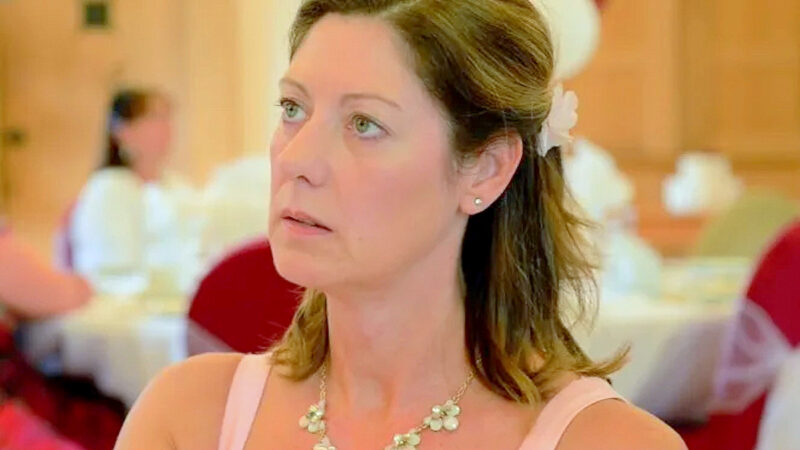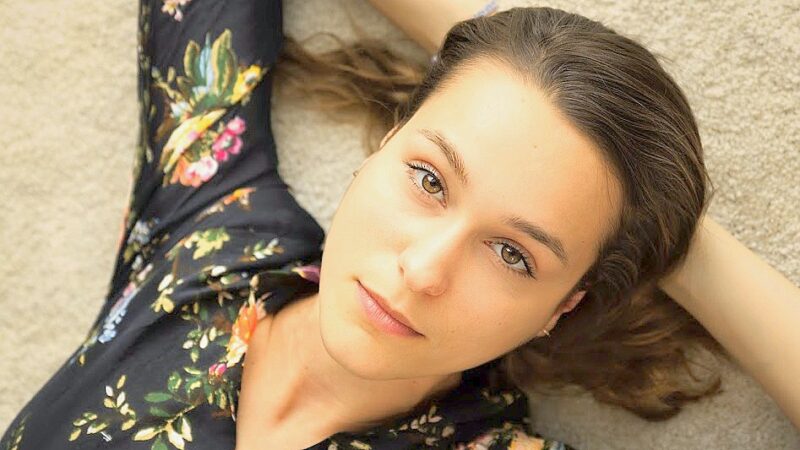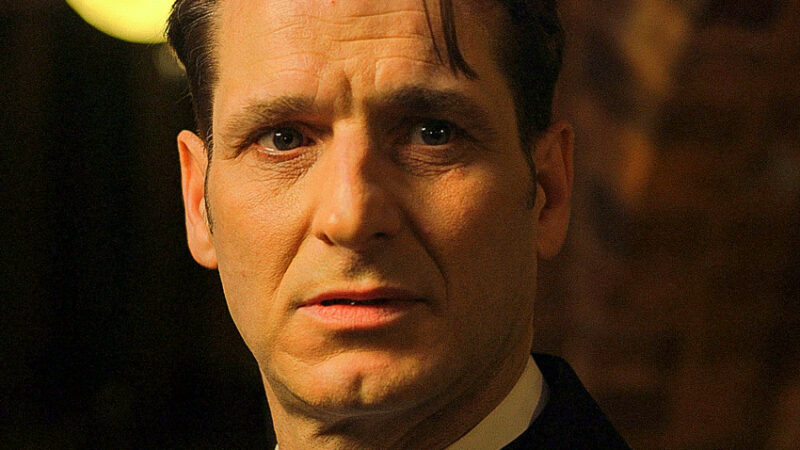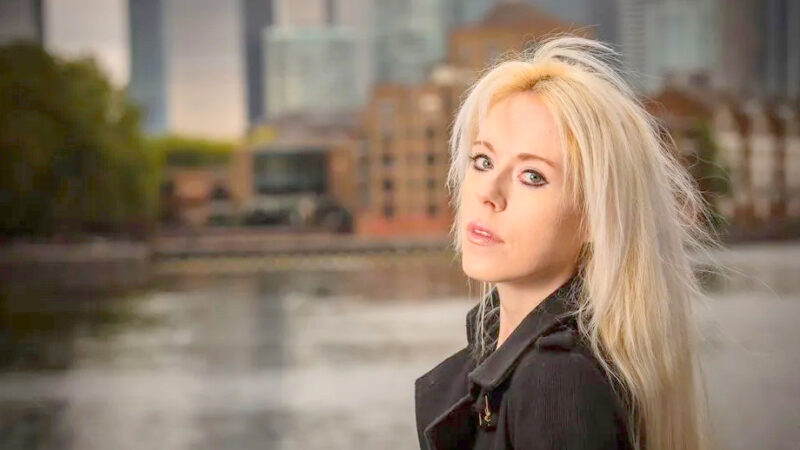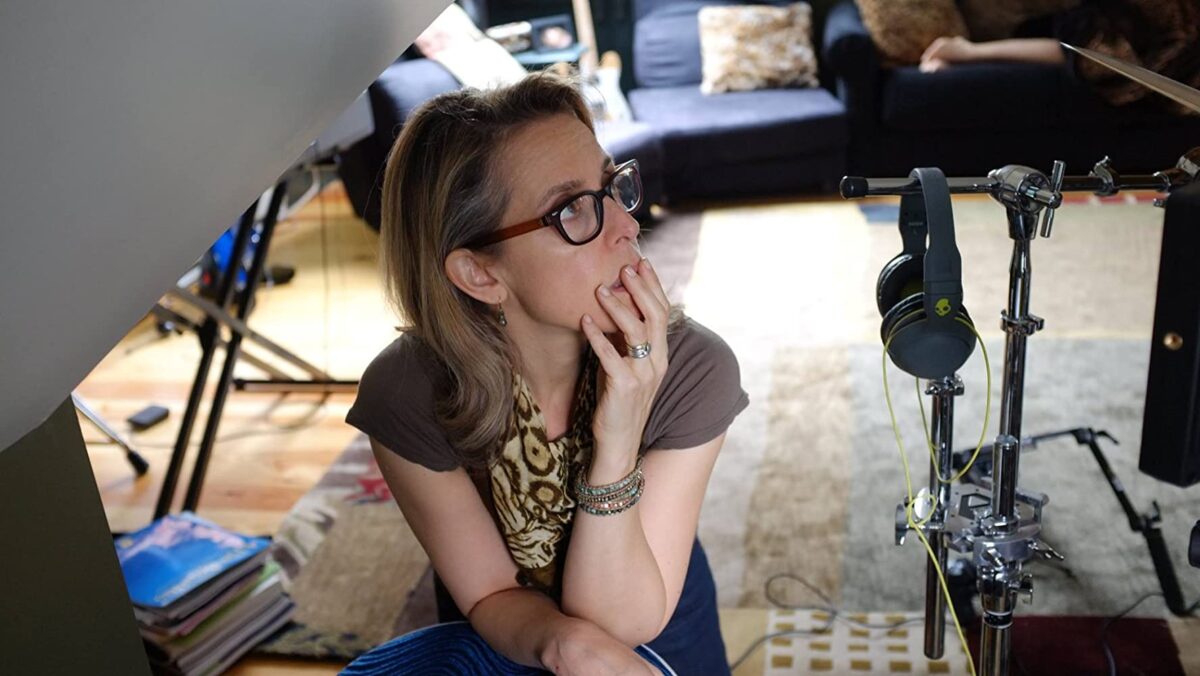
“The more I direct films, the more I feel like a conductor on many levels… it feels like a way to create harmony out of “drama”, the mess we’re in on personal or global levels. I listen to the music of the scene, the actors a lot for both authenticity but also for finding where the musical journey goes and how it evolves,” says Alyssa Rallo Bennett.
I’m also looking at the frame and what belongs in and out of the world of that rectangle. This includes light, production design, location, and the people living in it. It’s quite an incredible opportunity to get to lead a collaboration of creative people who trust both me and the material we’re shooting and are down for the work of creating something new, hopefully, evolutionary as much as it might help us solve something we might all be grappling, with humor and/or a new perspective.
There is a joy in being part of the universe created on set and screen. So much work goes into making a film but the more I get to do both long-form and short-form films or series, it feels like an opportunity to lead and create a world from the ground up, find some meaning, humor, grapple, and entertain. Whether it’s about getting in someone else’s shoes, shedding light on some issue, problem or dysfunction the joy or fun comes from heading into the drama and conflict and somehow finding a new way out, a new crack where light seeps in or making some new music or poetry out something that was a potentially a mess.
The Official Trailer for ReRUN. A feature film by Stonestreet Studios starring “Christopher Lloyd“, written by Gary O. Bennett, and directed by Alyssa Rallo Bennett
indieactivity: How did you get into directing?
Alyssa Rallo Bennett (ARB): I started as an actor because it felt like a place I could reinvent myself, get out of the constraints I had inherited and taken on from my parents, friends, and the culture I grew up in. At some point, I was not getting to work on the material and make a living at doing that in a meaningful way. I’ve always had an affinity for music, math, engineering, and producing. Directing and producing gave me a way to have ownership over the work I did. I member writing my first screenplay because I wanted a juicy role to playback in the early ’80s and then thinking, “I’d rather direct this!” So I better learn how to make a movie.
So I went to a place called Young Filmmakers aka Film/Video Arts, and they gave me the scholarship to make my first film, which I shot on 16mm and cut on a Steinbeck. I was about a girl who, no matter who it was, projected her mother onto everyone in her life. So I had the same actress play all the roles in the film outside of the girl but in a disguised way so you’d go for the ride that she was indeed a friend, a boss, a passerby. It was a very satisfying journey to have complete control of the palette and universe I was working in and creating on-screen. I loved being able to tell a story the way and how I wanted to tell it.
I remember dropping acting completely after doing a play at Ensemble Studio Theater in their Ocktoberfest with Bill Esper, who played my husband. My son, Adam was an infant and I took him to the theater with a babysitter. I remember saying to her he likes to sleep on his stomach so just watch him and put him down that way. But she was so busy trying to impress people at theater she didn’t hear that. After the play, I found him in Curt Dempster’s arms coming back from some deep sobs. Apparently he’d cried and cried because he couldn’t sleep and no one knew to put him on his back. I remember saying at that moment, “that’s it, I’m done.” I stepped fully into directing.
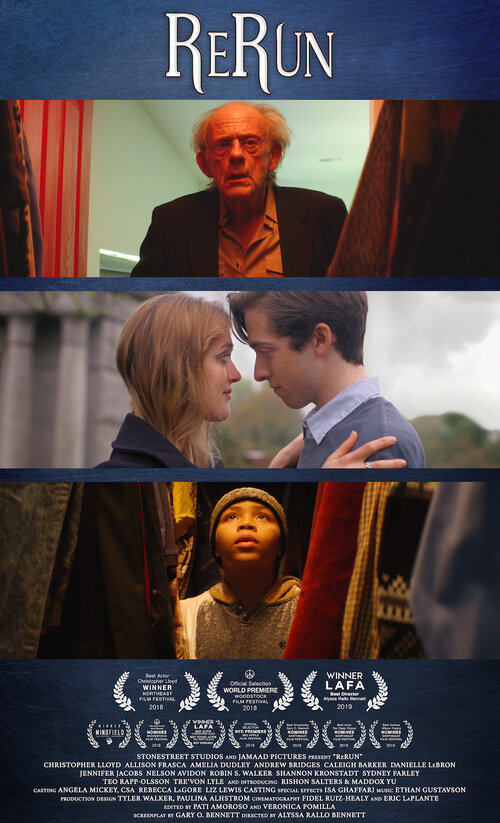
How do you choose a film project to direct?
Alyssa Rallo Bennett (ARB): II have to love the material, the idea behind it, the impetus for what the piece was written or find or be able to develop the hook that makes me understand why I should venture into making this film now. I mostly direct my husband’s writing, as we have a long term director-writer relationship where I read draft after draft.
- Link to ReRUN on Amazon Prime: HERE
- Link to ReRUN on AppleTV: HERE
- Link to The Pack on FLIXA: HERE
- Link to Paradise by the Dashboard Light on FLIXA: HERE
What uniqueness can a female filmmaker bring to film/tv/cinema?
Alyssa Rallo Bennett (ARB): The undying ability to make things work, to collaborate, to find harmony, get along, and grapple with struggle rather than just walk away from it. This is something that is in our DNA from being the people who have to do this to protect our children. That said, there are many men who are, thank God, in touch with this more ‘feminine’ trait, so I am of course talking in generalization in order to answer your question.
We have our own experiences and are often deeply connected to the struggles of other women, that we must find ways of sharing through new narratives so that we can indeed share stories, visuals, and the experience from a female perspective that men have been afforded to do in the movies predominantly for a long time. We also can extend the generosity that we have among each other and by hiring other women to work with along with men, and be the example that shows men and women alike how we can share the arena to everyone’s benefit.
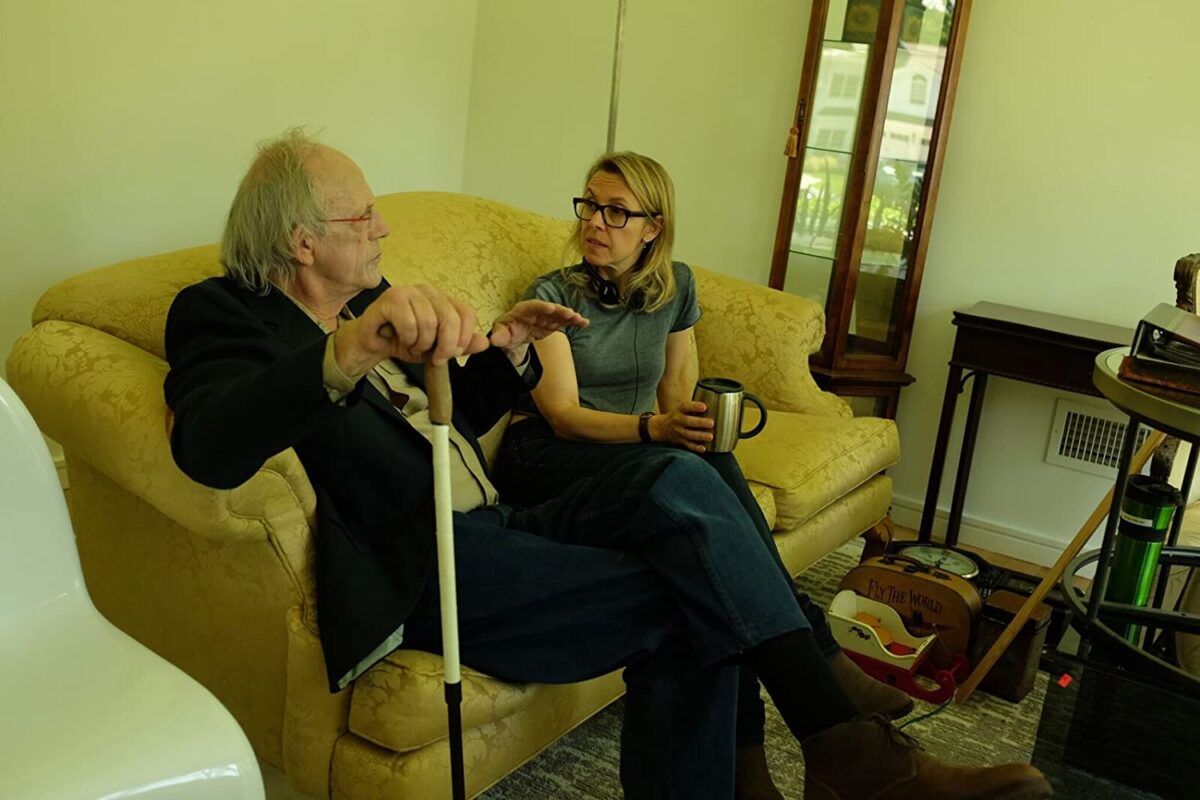
Do you ever take courses to improve your craft?
Alyssa Rallo Bennett (ARB): Because, I run a film studio, Stonestreet Studios, the residency program that trains NYU Tisch Drama, and therefore direct, produces, and develop a lot, along with being the mother of three, I mostly do online courses, be it Master Class, Vimeo tutorials, and learn by experimenting in another form, like music. I also enjoy watching other people work at Stonestreet and find it refreshing to see other directors do what I do differently.
Do you find inspiration in literature?
ARB: I just read the book Three Women by Lisa Taddeo, which was incredibly riveting – a page-turner about three very different women, from completely different backgrounds and how their lives were shaped due to their relationships with men and the place they were ‘cast’ into by culture and family. The after-effect of the book made me feel like I was punched in the stomach, and more consigned to really completely try to question, rewrite, and define the narrative in which I live.
But honestly, since I was a kid, the most influential writers that have somehow defined me are reading the Dali Lama, Gandhi, Martin Luther King, Tennessee Williams and how he held a deeply compassionate but detailed mirror to women and men, the poet e.e. cummings, who broke forms and found new ways to sing out ideas that resonate, and my dad, Martin Steingesser’s poetry and writing, as he was always both political and in love with the simplicity of nature and always found new ways to stop and dive into a moment that needed or wanted to be looked at and felt.
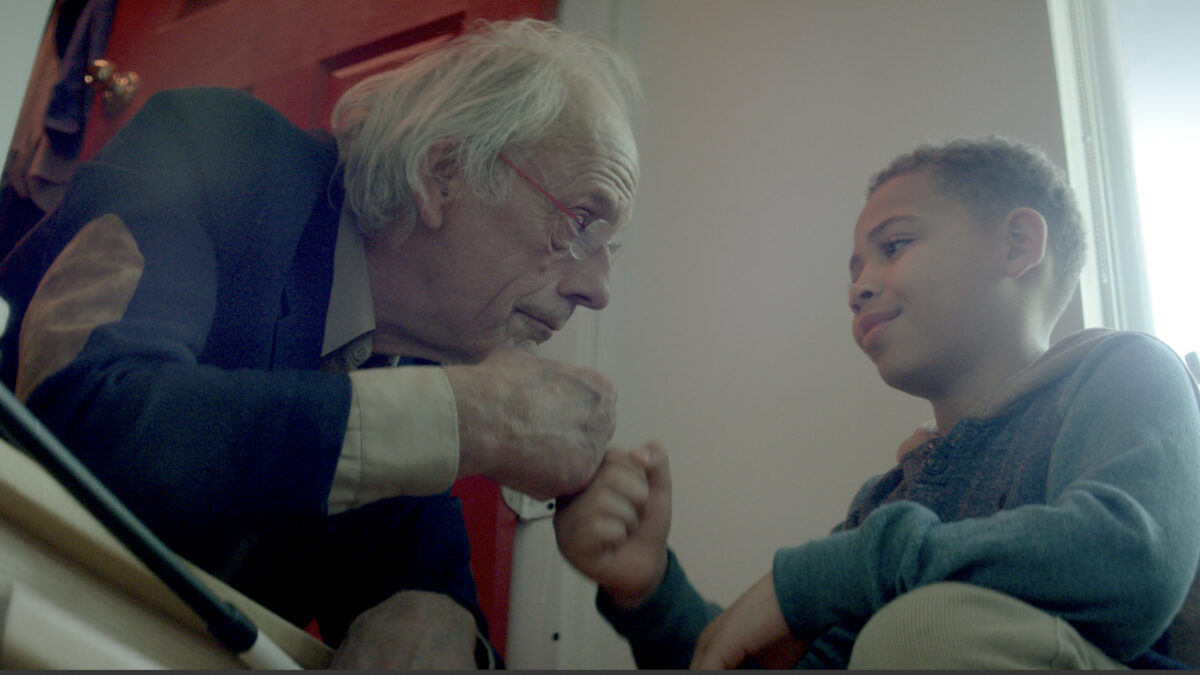
What do you look for in an actor, writer, and/or producer?
ARB: In an actor, I look for someone who both comes in with strong choices, is willing to play and collaborate, and has some deep understanding about how the more conceptual ideas of the screenplay might resonate in their characters and are indeed willing to work on that. The work we do together is that that which is not on the page. What I hope for in a good producer or aspire to myself, aside from making sure all aspects of production and financing are engineered thoughtfully and well, is one whose<<< priority is about making everyone’s job a joy and a safe place to take risks with regard to the work we are all exploring and getting on screen
When you are offered a project, what do you look for to know that it’ll be successful and worth the investment of your time, energy, and creativity?
ARB: Well you don’t know that it’s going to be successful, but you have faith in yourself that you will define what success you want for it and make that happen. As a director who produces or is part of the production team the onus is on you to be the one to make it ‘successful’, which to me is finding a fresh and authentic way to share something about humanity, struggle and our world in a resonate and ‘entertaining’ way.
Briefly explain your latest work?
ARB: My feature film ReRUN, featuring Christopher Lloyd and an incredible young ensemble, was just released on iTunes/AppleTV and Amazon. It’s dark and uplifting. My first feature film, The Pack, and series I directed, Paradise by the Dashboard Light, were just released by FLIXA. Coming soon, I have an exciting series that an amazing and forward-thinking Netflix producer is developing with me called RESPEKT, that focuses on women’s rights in season one – we’re hoping that the right platform will run with it… stay tuned for that.
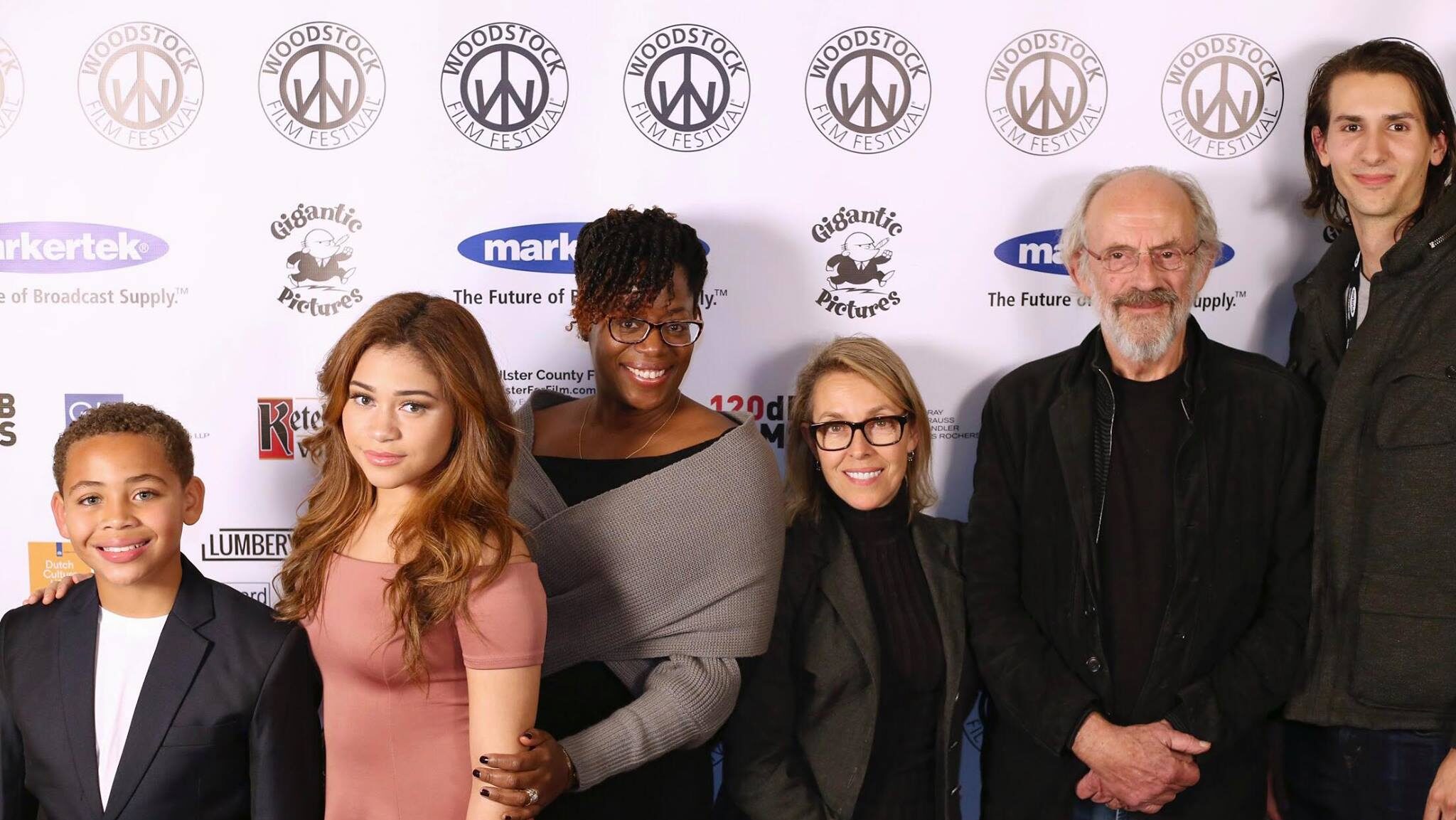
What are the key challenges you experienced on your last film?
ARB: The challenge is always finding the right people, money, or platform for projects. But as I continue to do this, I appreciate the time it takes because the project always percolates more deeply when you have to constantly articulate to people what you are doing and why you are doing it. The biggest challenge with “ReRUN” was that it was a hybrid ensemble piece with a star and finding a way to present the film accurately, so you are attracting the right audience and not setting it up for something it is not.
I’ve learned this lesson a few times over. That the marketing of film must help the audience and distributors alike to know what they are getting into if they watch it, rather than ‘entice’ people to watch a film because of some element that is not really what the film is. We’ve been talked into posters that ‘sell’ the film that it is not, changing titles to reflect a film that the film is not, and taglines that say nothing… and it never works well. It’s tough when a distributor or rep wants a film but doesn’t see it that way. You know your ‘child’ better, but don’t want to lose a deal with someone who seems to believe in your film.
What “thing/memory/item/situation’” helps you during production?
ARB: Always keeping my eye on the ‘big picture’ at the same time reveling in the electricity and synergy of the moment and surprises of it if I remain open. And mostly my commitment to and believe that everything can work out with creativity and imagination. Although that may be tested with the current state of the environment if we don’t use that ingenuity more quickly and effectively.
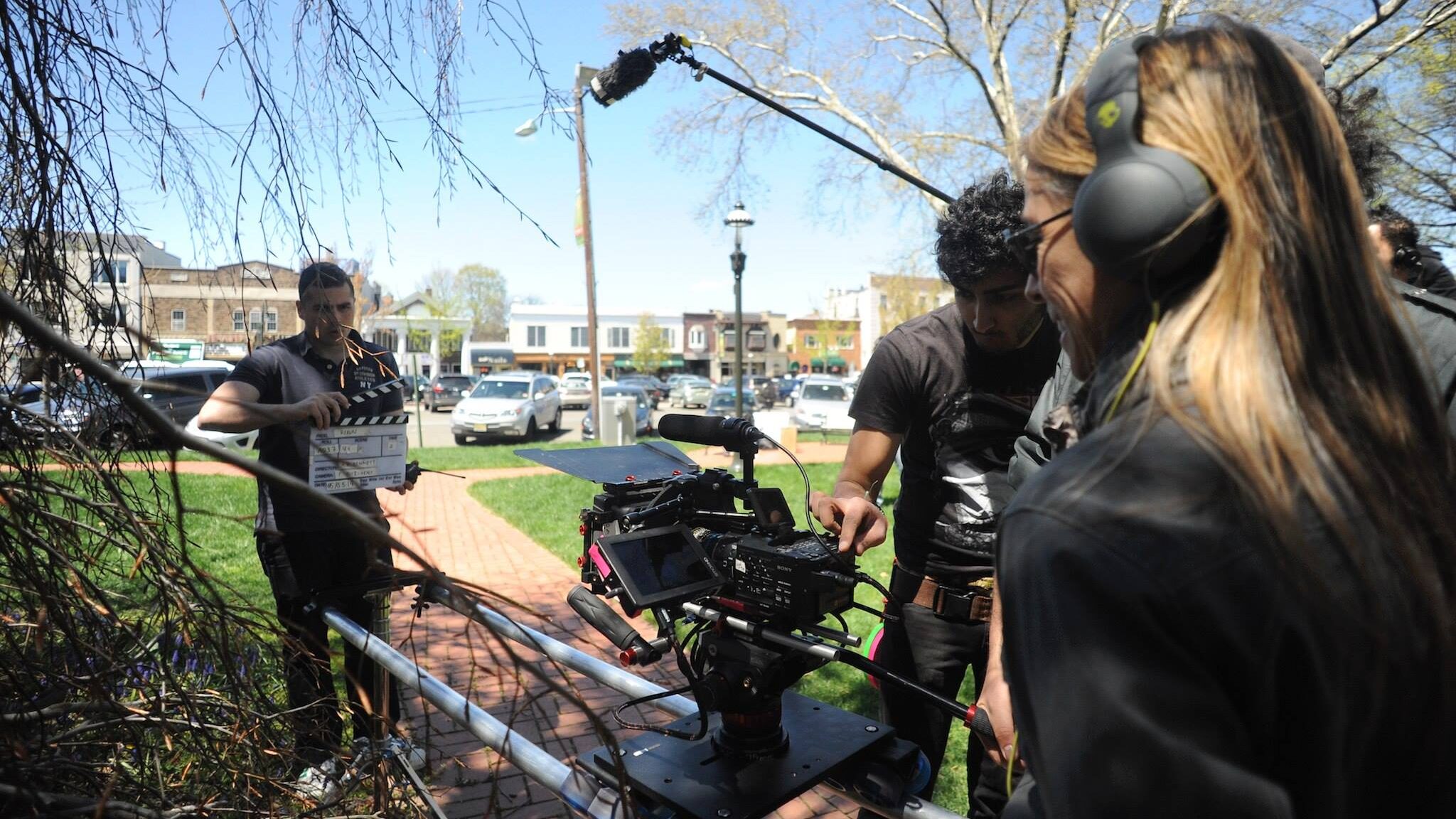
Explain a creative choice you recently made on set?
ARB: I am a very supportive and constructive director, but I was working on the close-up of a very talented young actor. And we really were running out of time. The part was a guy who seems pretty nuts as he comes up with paranoid alien scenarios that he thinks are happening outside as a way of grappling with and getting his girlfriend to admit and come clean about an affair and her feelings for him.
He had to make his girlfriend believe the unbelievable and it just wasn’t happening, so off-screen I pushed him with comments like, ‘I don’t believe you’ and ‘we don’t get it’. I goaded him, only because he is a confident guy, I thought he’d know my intention and run with it to good effect. We just watched the footage and it was a relief to see that he nailed it and understood it. I don’t think the end result justifies any means and I am committed to a healthy constructive process as ultimately it’s better for all on every level, but occasionally one has to look at one’s rules and see where a jolt or nudge is warranted.
How do you advise female directors to find projects?
ARB: Read everything from novels to non-fiction and interviews to the news, listen to music and poetry, connect to people, and find where your stories and narratives from within connecting with those around you. Find the stories that are not being told or those that are in a way that they haven’t been told.
How can filmmakers finance their projects?
ARB: As creatively as you can. Work with what you have and the people you know. Find a way to articulate what you need that you don’t have and what you have to offer those who might want to collaborate with you be it services, experience, or some ownership of the film you are making.
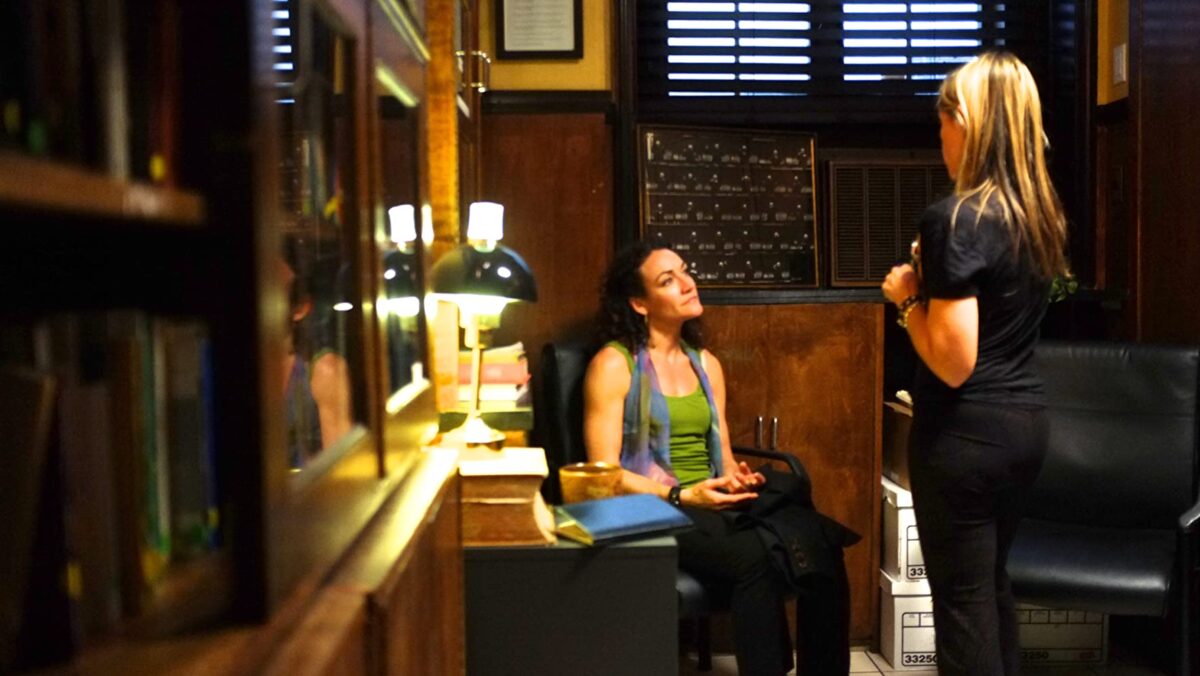
How do you prefer to work with your producer during a production?
ARB: I try to make myself available nearly any time and like to have a close relationship with my producers. It’s wonderful to have a person who you can bounce anything off of from ideas to problems. If they can be available to help troubleshoot and affirm it’s a relationship made in heaven.
What do you think a female director can do to fight disparity and break into the film industry?
ARB: Be the example, make your own work, look at your own arena and ask if you have relative equity over time and space of women and men involved as well as diversity. If you don’t, then try to fix that with the right people.
Who is your favorite director and why?
ARB: I have many favorite directors both women and men – Jane Campion, Stanley Kubrick, Ava DuVernay, Jim Sheridan, Lina Wertmuller, Atom Egoyan, Ingmar Bergman. To pick one and why Jane Campion has made the films she wanted to make small or large in scope she wanted to make to the best of her ability. From “Sweetie” to the “The Piano” and beyond. She, like all the others above, were committed to telling a story in the way they felt it and saw it while collaborating with many other people at the very same time!
What advice would you give female directors around the world?
ARB: It’s possible to make a film with an iPhone if you have a personal story to tell. Take the time to listen to others but make your own decisions. Don’t compromise on vision, casting, working with people who are truly constructive and collaborative, and how you tell your story. Take the time to prepare, know your material, mull it over and live with it, that you need before jumping into pre-production and production.
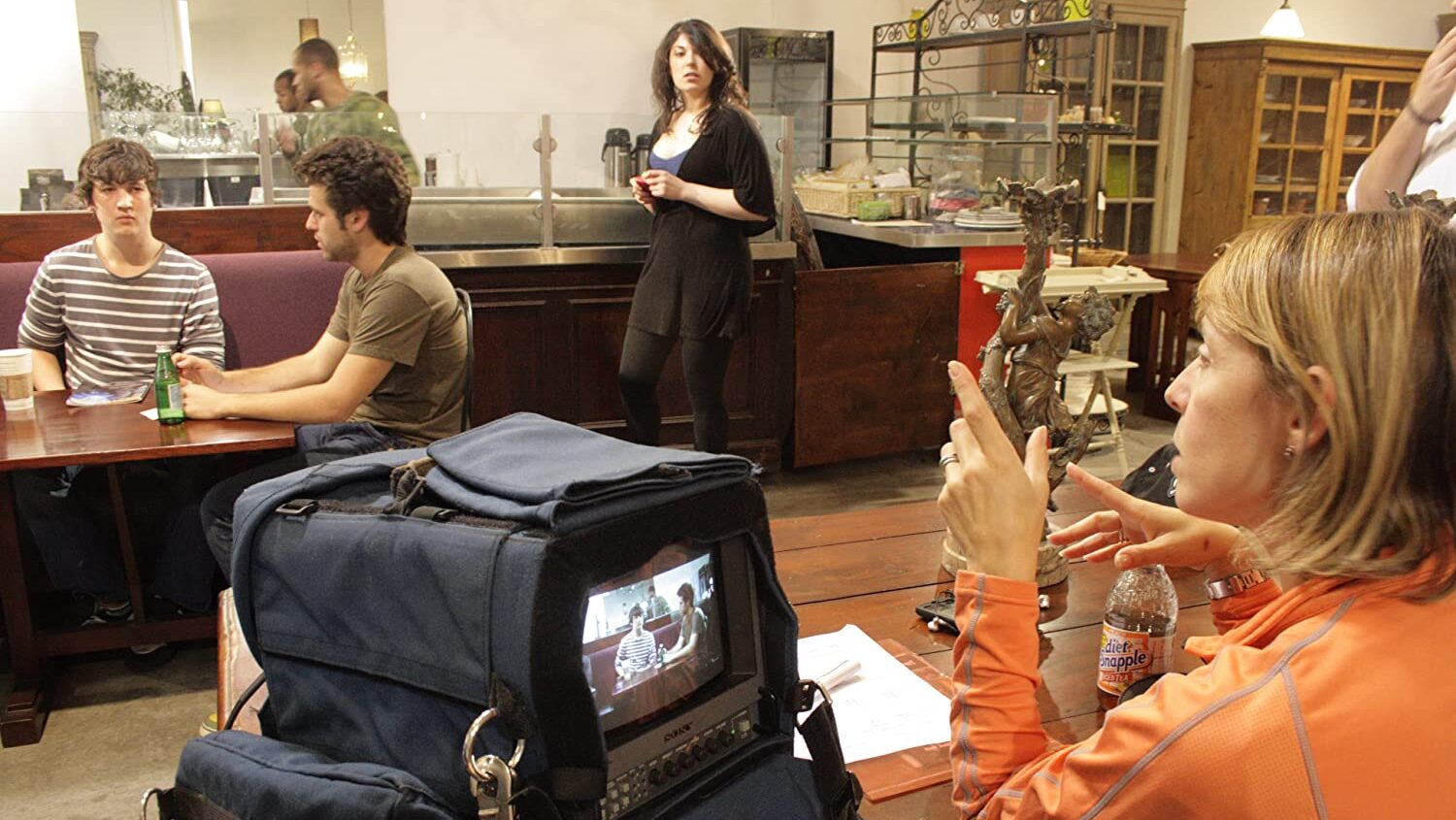
Also, when you make a mistake with casting or a crew person who is not able to make it work or is a negative drain on set because in spite of they distract on set, pull the focus off the work, don’t respond to requests to the contrary, ‘let them go’ sooner than later. While you may like to give people second chances to step up or change course if someone doesn’t get it, or when they don’t repeatedly, or think they are exempt from what the set protocol is, don’t compromise just to /try and make it everything work’ even when it’s someone you ‘like’ or have a longer-standing relationship with. All things I constantly need to remind myself.
Tell us what you think of the interview with Alyssa Rallo Bennett What do you think of it? What ideas did you get? Do you have any suggestions? Or did it help you? Let’s have your comments below and/or on Facebook or Instagram! Or join me on Twitter.
Follow Alyssa Rallo Bennett on Social Media
Website
IMDb
LinkedIn
Facebook
Twitter
Instagram
Vimeo
Thomasin Lawson, Joins Honor Swinton-Byrne and Greta Bellamacina on “All Five Eyes”
Alta Global Media on board to Executive Produce the US/UK Co-Production
Exclusive Interview with Aleesha Yates on Feature Documentary, “Surviving Pulse”
Aleesha Yates is a driving force behind making “Surviving Pulse: Life After a Mass Shooting” feature doc.
Jack Roper Joins Cast of Bruno Pischiutta’s Mega-Film Project, The Trilogy
British Actor Jack Roper joins Stephanie Tripp, Seven Grant, and Cristina Perez
The Exploding Boy by Monty Wolfe. The Micro-Budget Queer Coming Of Age Comedy
Monty Wolfe delivers an up-beat alternative to reboots, remakes, and sequels.

